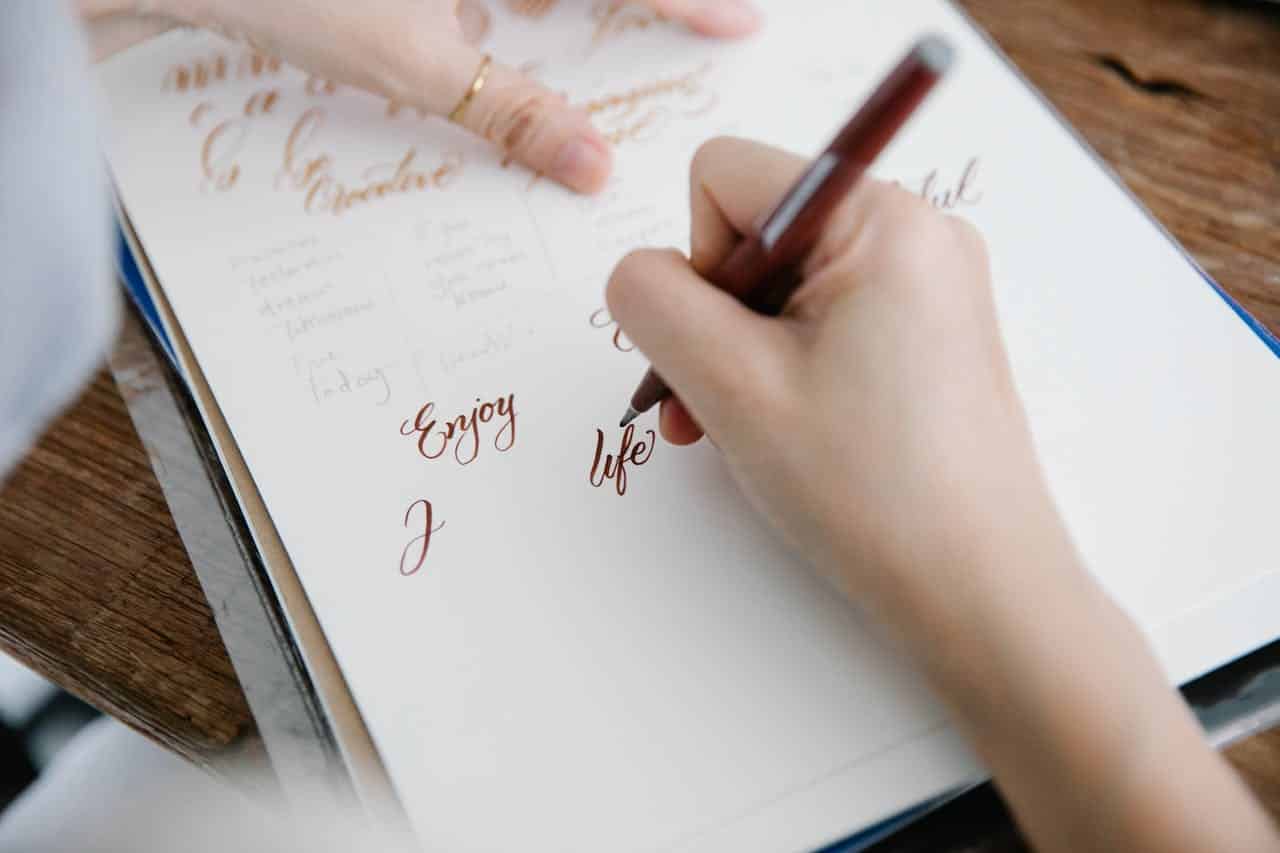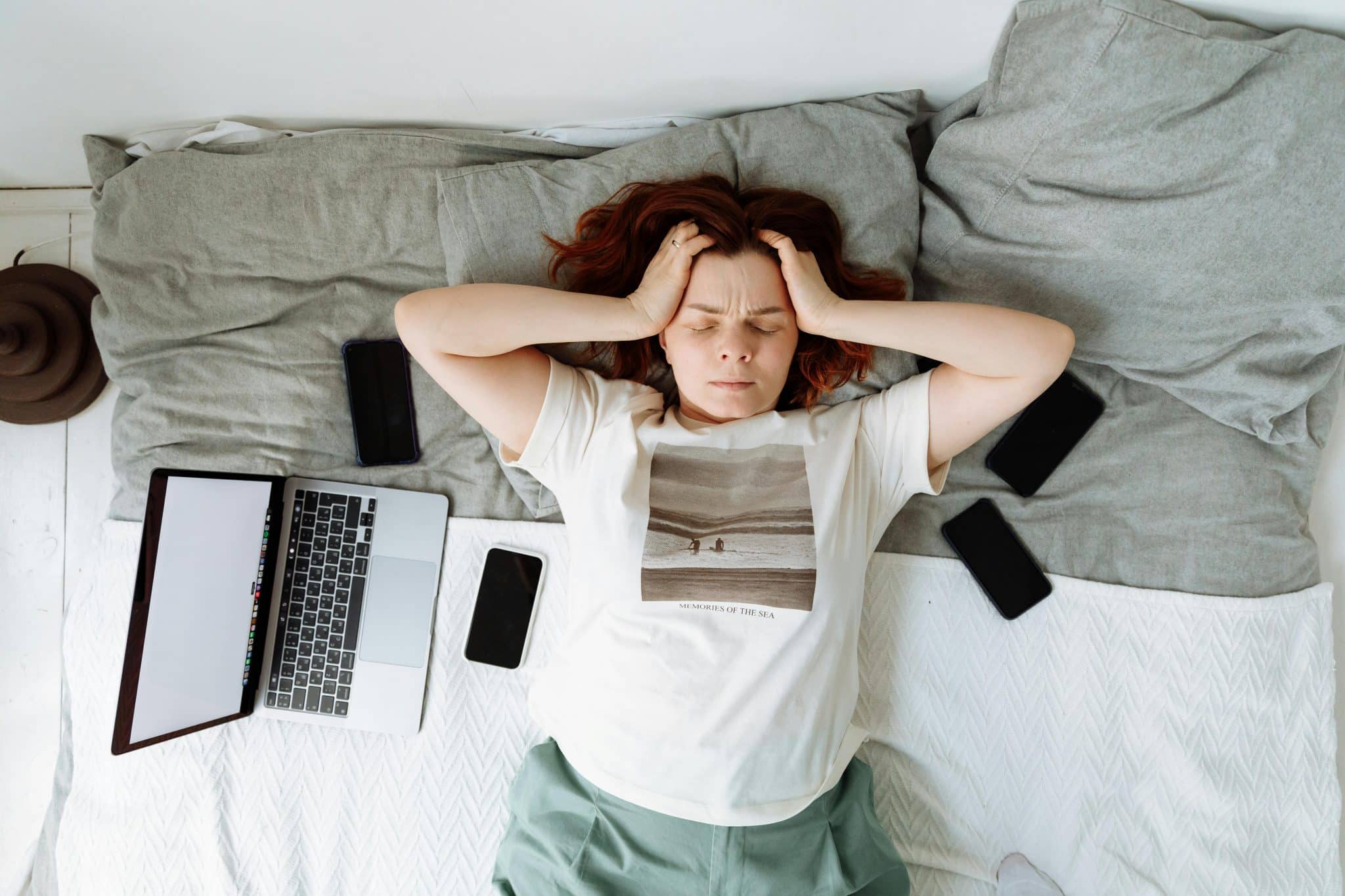Deep Sleep Routine: The Secret to Peak Focus and Energy

Nearly 1 in 2 adults report poor sleep quality, and the consequences are bigger than grogginess. Without deep sleep—the restorative stage where your brain clears toxins and consolidates memories—your focus, decision-making, and energy plummet. In fact, even one night of poor sleep can reduce cognitive performance by up to 40% (NIH). The culprit isn’t just sleep quantity, but the constant blue light, late-night scrolling, and broken routines that rob your deep sleep window. This guide explains the science behind deep sleep, why your phone is sabotaging it, and a step-by-step deep sleep routine to protect your nights so you can reclaim peak focus, calm, and energy the next day.
Why Your Brain Craves Deep Sleep (and Why Screens Steal It)
Deep sleep isn’t optional—it’s how your brain resets. During this stage, your prefrontal cortex, the region responsible for focus and self-control, restores itself. Miss this window, and your brain feels foggy, impulsive, and distracted, similar to being slightly intoxicated.
Every late-night scroll chips away at tomorrow’s focus. Studies show people lose 2.5 hours of productivity daily from poor sleep, the same time most of us spend on our phones at night. Protecting your deep sleep routine means protecting your future productivity.
📌 Key takeaway: Deep sleep fuels memory, problem-solving, and emotional balance. Skip it, and no amount of caffeine will fully restore your clarity.
👉 Try Freedom to block distractions: Download Freedom
How does blue light mess with your circadian rhythm?
Your phone is basically a tiny sun that you hold two feet from your face. And your brain? It’s confused as hell.
Your phone is basically a pocket-sized sun. The blue light it emits suppresses melatonin by up to 85%. That means your brain thinks it’s midday, even when it’s 11 PM. The result? Wired nights and sluggish mornings.
Think about it, our ancestors went to sleep when the sun went down. Now we’re blasting our retinas with artificial daylight until minutes before we expect to fall asleep. No wonder 46% of adults report poor sleep quality. Consistently following a deep sleep routine is one of the most reliable ways to counteract this effect.
👉 Freedom Tip: Use a ‘Digital Sunset‘ by scheduling Freedom sessions to block apps that keep you wired past bedtime.

What Actually Happens in Deep Sleep?
Not all sleep is equal. Deep sleep—also called slow-wave sleep, is your body’s nightly repair shop:
- Brain Detox: Clears waste proteins linked to brain fog.
- Memory Consolidation: Stores short-term learning into long-term memory.
- Immune Boosting: Produces cells that fight infection.
- Hormone Regulation: Balances cortisol and boosts growth hormone for repair.
📌 Without this stage, you’re left with fatigue, higher stress, and impaired focus. A consistent deep sleep routine makes sure your body gets this vital reset every night.
The Brutal Reality of Deep Sleep Deprivation
WScrolling past midnight steals your brain’s most restorative hours. Consequences include:
- 40% weaker memory retention
- Increased cortisol (stress hormone)
- Higher risk of illness from weakened immunity
- Poor decision-making and impulse control
Deep sleep happens mostly in the first half of the night. Going to bed at 2 AM means you miss the bulk of this recovery cycle—something you can’t “catch up on” later. Building a deep sleep routine protects this first cycle of rest.
Your brain needs consistent, early bedtimes to access those crucial deep sleep stages.
The Deep Sleep Blueprint That Actually Works
Forget elaborate 20-step routines. Here’s a proven 90-minute wind-down deep sleep routine:
- 9:00 PM – Digital Sunset → Block notifications and distracting apps with Freedom.
- 9:30 PM – Temperature Drop → Lower your thermostat to 65–68°F or take a cool shower.
- 10:00 PM – Light Dimming → Switch to lamps or warm-toned bulbs to trigger melatonin.
- 10:30 PM – Phone Parking → Leave your phone outside the bedroom. Use an alarm clock instead.
✅ These steps align your body clock with its natural rhythm, making your deep sleep routine automatic.
Bedtime Habits for Focus
Your evening is your productivity pre-game. Instead of doomscrolling, try:
- Journaling tomorrow’s top 3 priorities
- Drinking herbal tea
- Keeping devices out of reach (or blocked with Freedom)
A simple deep sleep routine like this ensures your focus is ready without effort the next morning.
👉 Read more: How doomscrolling sabotages focus
Circadian Rhythm Hacks for Digital Nomads
Traveling or working across time zones? Your circadian rhythm still wants consistency. Here’s a 2-week reset:
Week 1 – Light Discipline:
- Get sunlight within 30 minutes of waking.
- Avoid bright light 2 hours before bed.
- Block blue-light-heavy apps like Instagram, TikTok, and YouTube after sunset.
Week 2 – Consistency Lock-In:
- Fixed wake and sleep times—even weekends.
- Regular meal timing to reinforce internal clocks.
👉 Explore more: Blue light and sleep cycles
Following a deep sleep routine during travel helps minimize jet lag and focus loss.

How Do You Track And Improve Your Sleep Without Becoming Obsessed?
Sleep tracking can be incredibly helpful or completely counterproductive, it all depends on how you use it. Some people become sSleep tracking can be incredibly helpful or counterproductive depending on how it’s used. Some people develop orthosomnia, which is anxiety about not getting perfect sleep that makes rest even harder.
Track: Sleep onset, wake-up consistency, energy levels, and evening screen time.
Ignore: Deep vs. REM percentages (often inaccurate) and daily sleep scores that fuel anxiety.
📌 Pro Tip: Check your sleep data weekly, not daily. Use insights to adjust your Freedom sessions. If you see improvement after adjusting your bedtime, it’s a sign your deep sleep routine is working.
👉 Related read: Blue light facts and stats.
It’s Not Just About Sleep. It’s About Protecting Your Mind
Late-night scrolling feels productive, but it’s really borrowing energy from your future self. Protecting your deep sleep routine isn’t about perfection, it’s about boundaries. You don’t need 15 apps or a $3,000 mattress. You need 8 consistent hours and the discipline to protect them.
The most successful entrepreneurs and freelancers aren’t burning the midnight oil. They’re the ones who treat sleep like an investment because it’s the ultimate strategy for focus, creativity, and resilience.
👉 Ready to make this automatic? Download Freedom and start protecting your evenings today.
FAQs
Most adults need 1.5–2 hours of deep sleep per night, typically in the first half of sleep. Building a consistent deep sleep routine makes this easier.
No—deep sleep is front-loaded and requires consistent early bedtimes. A weekend recovery nap won’t replace a missed deep sleep routine.
Blue light suppresses melatonin by up to 85%, delaying natural sleep onset. Protecting your deep sleep routine starts with limiting screens before bed.
Start with a ‘digital sunset‘: block screens and notifications 1–2 hours before bedtime. This single change supports a strong deep sleep routine.
The best tracker is how refreshed you feel in the morning. If you wake up sharp and focused, your deep sleep routine is doing its job. For extra support, you can also use Freedom sessions to block digital distractions in the evening, helping you wind down consistently and protect your nightly reset.


